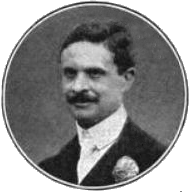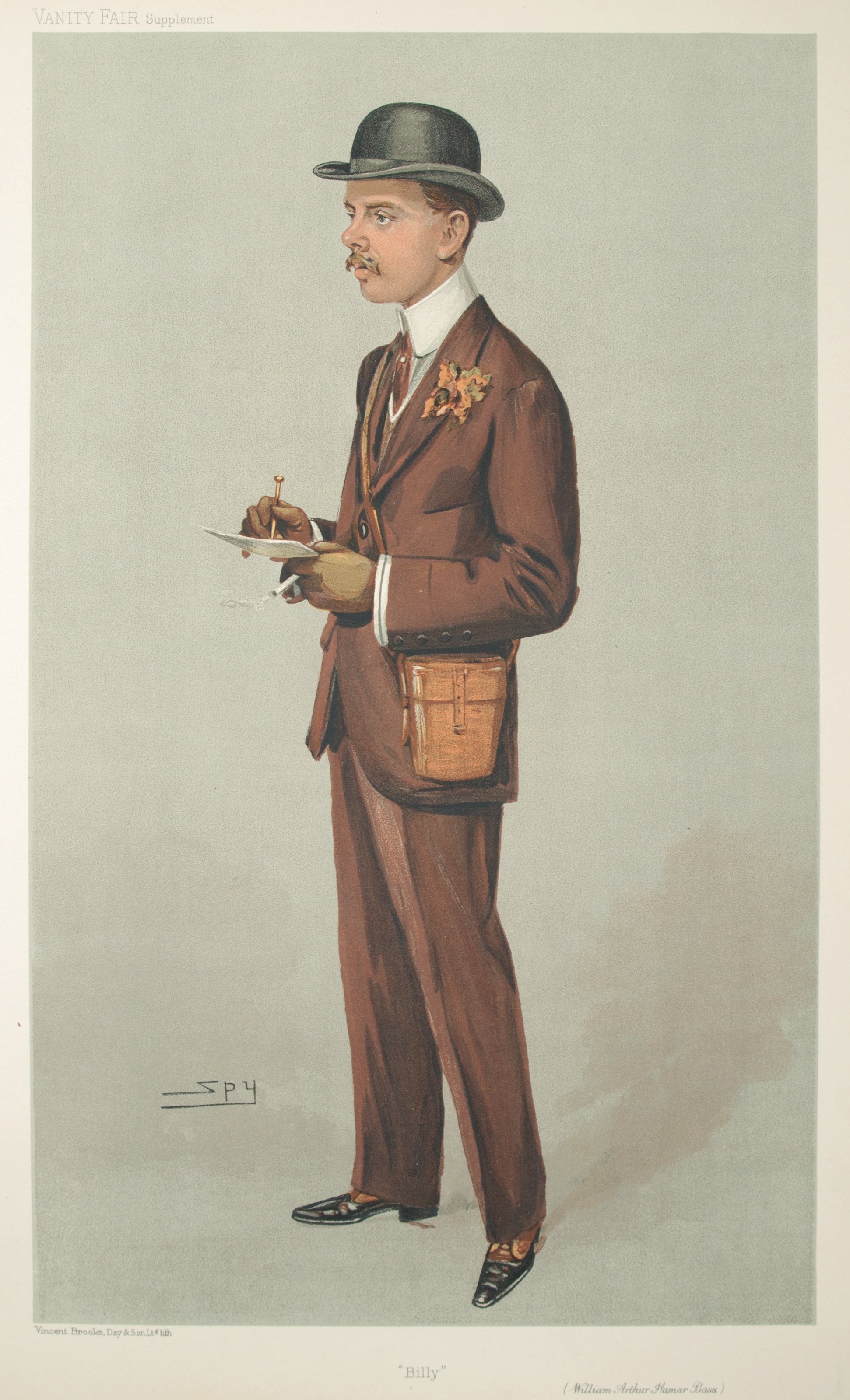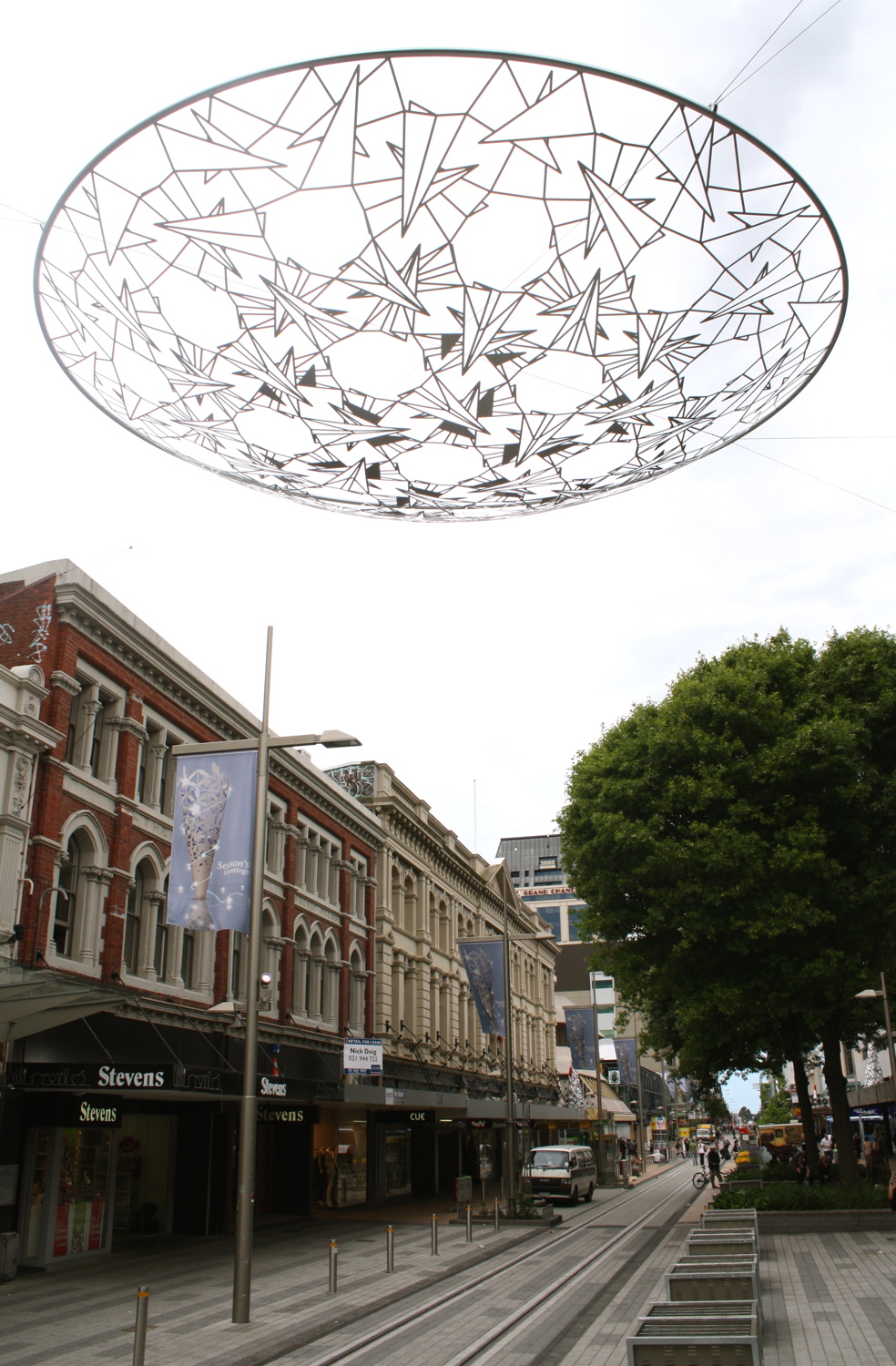|
Rosedrop
Rosedrop (1907–1930) was a British Thoroughbred racehorse and broodmare. She won one minor race as a two-year-old in 1909 before emerging as a top-class performer in the following year. She won the Epsom Oaks, Atalanta Stakes and Great Yorkshire Stakes as well as finishing third in the 1000 Guineas and the Park Hill Stakes. After her retirement from racing she became a broodmare in England, and later in the United States. By far the best of her offspring was Gainsborough who won the 13th U.K. Triple Crown Champion and became a very successful breeding stallion. Background Rosedrop was a chestnut mare bred in England by John Doyle and owned during her racing career by Sir William Bass, 2nd Baronet who bought her as a yearling for 700 guineas. She was sent into training with Alec Taylor, Jr. at Manton, Wiltshire. She was sired by St. Frusquin who won the Middle Park Plate, Dewhurst Plate, 2000 Guineas, Princess of Wales's Stakes and Eclipse Stakes and was described as one ... [...More Info...] [...Related Items...] OR: [Wikipedia] [Google] [Baidu] |
Winkipop
Winkipop (1907–1931) was a British Thoroughbred racehorse that won the 1910 1,000 Guineas Stakes and Coronation Stakes. She raced briefly at age four and was retired from racing in 1911. As a broodmare, she produced the good racers Plymstock and Blink before she was exported to the United States in 1927. Winkipop died in 1931 at the Mereworth Stud near Lexington, Kentucky. Background Winkipop was foaled in 1907 at the Cliveden Stud, a Thoroughbred breeding farm owned by Waldorf Astor at his family's estate near Taplow in Buckinghamshire. Winkipop was sired by William the Third, a good racehorse and sire that was second to Volodyovski in the 1901 Derby and won the 1902 Ascot Gold Cup. Lord Astor bought her dam, Conjure, for £100 when he was a student at Oxford as a potential producer of steeplechase and hunt horses. The mare eventually became an integral part of his Cliveden Stud, producing many top-class racers. Full-siblings to Winkipop include the filly Third Tric ... [...More Info...] [...Related Items...] OR: [Wikipedia] [Google] [Baidu] |
Gainsborough (horse)
Gainsborough (1915–1945) was a British bred Thoroughbred racehorse who won the English Triple Crown in 1918 and became a superior sire. Background Gainsborough was a bay horse bred by his owner Lady James Douglas (1854–1941). The colt was named after the town of Gainsborough, Lincolnshire because his owner liked the sound of the name. Gainsborough was sired by Bayardo, who also sired the 1917 Triple Crown winner, Gay Crusader, and was out of Rosedrop, who won the 1910 Epsom Oaks and £9,809.Prior, F.M., "Register of Thoroughbred Stallions", Vol. VI, The Sportsman Office, London, 1923 Gainsborough's damsire was St. Frusquin, who won nine races including the 1896 2,000 Guineas and £33,960. Galopin was duplicated in the third and fourth generations of Gainsborough’s pedigree. He was not a big horse but possessed very good conformation and a kind temperament. One commentator described him as a "horse that would stand a campaign on the Western Front with Sir Douglas Haig on ... [...More Info...] [...Related Items...] OR: [Wikipedia] [Google] [Baidu] |
Epsom Oaks
The Oaks Stakes is a Group 1 flat horse race in Great Britain open to three-year-old fillies. It is run at Epsom Downs over a distance of 1 mile, 4 furlongs and 6 yards (2,420 metres), and it is scheduled to take place each year in late May or early June. It is the second-oldest of the five Classic races, after the St Leger. Officially the Cazoo Oaks, it is also popularly known as simply The Oaks. It has increasingly come to be referred to as the Epsom Oaks in both the UK and overseas countries, although 'Epsom' is not part of the official title of the race.) It is the third of Britain's five Classic races to be held during the season, and the second of two restricted to fillies. It can also serve as the middle leg of the Fillies' Triple Crown, preceded by the 1000 Guineas and followed by the St Leger, although the feat of winning all three is rarely attempted. History The event is named after ... [...More Info...] [...Related Items...] OR: [Wikipedia] [Google] [Baidu] |
Sir William Bass, 2nd Baronet
Sir William Arthur Hamar Bass, 2nd Baronet (24 December 1879 – 28 February 1952) was a British racehorse owner and a significant contributor to the racing industry. He also provided support for the British film industry in its early days. Biography Bass was the son of Hamar Alfred Bass and his wife Louisa Bagot (1853–1942), daughter of William Bagot, 3rd Baron Bagot. His father's family traced its fortunes to William Bass, who founded the famous Bass brewery company. He was educated at Harrow School and started at Trinity College, Cambridge, but appears to have decided to join the army instead. He was commissioned a second lieutenant in the 3rd Battalion, the East Surrey Regiment on 14 April 1898. He transferred to the 10th (Prince of Wales's Own Royal) Hussars on 18 November 1899 and served in the Second Boer War in South Africa from 1900 to 1902, attached to a provisional regiment of hussars, during which he was promoted to lieutenant on 3 October 1900. Following the ... [...More Info...] [...Related Items...] OR: [Wikipedia] [Google] [Baidu] |
Oaks Stakes
The Oaks Stakes is a Group 1 flat horse race in Great Britain open to three-year-old fillies. It is run at Epsom Downs over a distance of 1 mile, 4 furlongs and 6 yards (2,420 metres), and it is scheduled to take place each year in late May or early June. It is the second-oldest of the five Classic races, after the St Leger. Officially the Cazoo Oaks, it is also popularly known as simply The Oaks. It has increasingly come to be referred to as the Epsom Oaks in both the UK and overseas countries, although 'Epsom' is not part of the official title of the race.) It is the third of Britain's five Classic races to be held during the season, and the second of two restricted to fillies. It can also serve as the middle leg of the Fillies' Triple Crown, preceded by the 1000 Guineas and followed by the St Leger, although the feat of winning all three is rarely attempted. History The event is named after ... [...More Info...] [...Related Items...] OR: [Wikipedia] [Google] [Baidu] |
Quintessence (horse)
Quintessence (1900–1917) was a British Thoroughbred racehorse who won the 1000 Guineas of 1903 and was unbeaten in her six races. She was owned and bred by Evelyn Edward Thomas Boscawen, 7th Viscount Falmouth. After retiring from racing she became a successful broodmare, with her son Clarissimus winning the 2000 Guineas. Background Quintessence was bay filly foaled in 1900 and bred by Evelyn Edward Thomas Boscawen, 7th Viscount Falmouth. She was a daughter of St. Frusquin, who won the 2000 Guineas and Eclipse Stakes in 1896. St Frusquin was also a successful sire and was Champion sire in Britain. His other progeny included St. Amant, 1000 Guineas winners Rhodora and Flair and Epsom Oaks winners Rosedrop and Mirska. Quintessence's dam, Margarine, was a daughter of 2000 Guineas winner Petrarch. Racing career 1902: Two-year-old season As a two-year-old Quintessence won the Biennial Stakes at Ascot. At Newmarket she won the six-furlong Exeter Stakes, with Sermon finishing sec ... [...More Info...] [...Related Items...] OR: [Wikipedia] [Google] [Baidu] |
Mirska
Mirska (1909 – after 1913) was a Thoroughbred racehorse that won the 1909 Epsom Oaks. Raced only three times in her lifetime, her only win occurred in the Oaks. Despite being a daughter of two English Classic winners, Mirska was not favoured to win the Oaks and won the race at 33-1 odds against the Derby winner and favourite Tagalie. She made no impact as a broodmare in France. Background Mirska was bred by Douglas Baird. Mirska's sire St. Frusquin was an outstanding racehorse who won the 2000 Guineas and the Eclipse Stakes in 1896. As a stallion he was Leading sire in Great Britain and Ireland on two occasions and sired the Classic winners Rosedrop (1910 Epsom Oaks), Flair (1906 1000 Guineas) and Quintessence (1903 1000 Guineas). Mirska's dam, Musa, won the Oaks in 1899 for her owner Douglas Baird. After Baird's death in April 1909, Musa was bought by Jean Prat (c. 1848 – 1940), a French turfman, for 4,000 guineas. Musa and her nursing foal Mirska were sent to Pra ... [...More Info...] [...Related Items...] OR: [Wikipedia] [Google] [Baidu] |
The Press
''The Press'' is a daily newspaper published in Christchurch, New Zealand owned by media business Stuff Ltd. First published in 1861, the newspaper is the largest circulating daily in the South Island and publishes Monday to Saturday. One community newspaper—''Northern Outlook''- is also published by ''The Press'' and is free. The newspaper has won the title of New Zealand Newspaper of the Year (in its circulation category) three times: in 2006, 2007 and 2012. It has also won the overall Newspaper of the Year title twice: in 2006 and 2007. History James FitzGerald came to Lyttelton on the ''Charlotte Jane'' in December 1850, and was from January 1851 the first editor of the ''Lyttelton Times'', Canterbury's first newspaper. From 1853, he focussed on politics and withdrew from the ''Lyttelton Times''. After several years in England, he returned to Canterbury concerned about the proposed capital works programme of the provincial government, with his chief concern the pro ... [...More Info...] [...Related Items...] OR: [Wikipedia] [Google] [Baidu] |
Jack Barnato Joel
Isaac "Jack" Barnato Joel (29 September 1862 – 13 November 1940) was a South African mining magnate and a champion horse breeder. Early life Isaac Barnato Joel was born on 29 September 1862 into a Jewish family, being one of three sons of Joel Joel (1836/7–1893), a London tavernkeeper of the ''King of Prussia'', and Catherine "Kate" Isaacs (1840–1917). Catherine's brother was Barnet Isaacs, later known as Barney Barnato (1851–1897). Along with his brothers Solomon Joel and Woolf Joel, he was taken under the wing of Barney Barnato and made a fortune from the Barnato Diamond Mining Company. Career Joel was accused of Illicit Diamond Buying "IDB" in South Africa under the 1882 Diamond Trade Act violation, but Cecil Rhodes was able to get him released so he could return to London. Joel served as Chairman of Johannesburg, South Africa Consolidated Investment Company Ltd from 1931 until his death in 1941. He also had a large interest in Diamond Corporation Ltd. and the ... [...More Info...] [...Related Items...] OR: [Wikipedia] [Google] [Baidu] |
Trenton (horse)
Trenton may refer to: Places Canada *Trenton, Nova Scotia, a town *Trenton, Ontario, an unincorporated community *CFB Trenton, a Canadian Forces Base near Trenton, Ontario United States *Trenton, New Jersey, the capital of the state of New Jersey *Trenton, Alabama, an unincorporated community *Trenton, Florida, a city *Trenton, Georgia, a city *Trenton, Illinois, a city *Trenton, Indiana, an unincorporated community *Trenton, Iowa, a census-designated place * Trenton, Kansas, an unincorporated community *Trenton, Kentucky, a city *Trenton, Maine, a town *Trenton, Michigan, a small city *Trenton, Missouri, a city *Trenton, Nebraska, a village *Trenton, New York, a town *Trenton, North Carolina, a town *Trenton, North Dakota, an unincorporated community *Trenton, Ohio, a city *Trenton, South Carolina, a town *Trenton, Tennessee, a city *Trenton, Texas, a city *Trenton, Utah, a town *Trenton, Wisconsin (other), various places *Trenton Township (other), various plac ... [...More Info...] [...Related Items...] OR: [Wikipedia] [Google] [Baidu] |
Fresh Air Fund
The Fresh Air Fund is a 501(c)(3) not-for-profit agency founded in 1877. At sleepaway camps in New York’s Mid-Hudson Valley, visiting volunteer host families along the East Coast and in NYC-based programs, children have new experiences, learn new skills and gain new perspectives. Fresh Air children also participate in year-round leadership, career exploration and educational programs. The Fresh Air Fund has served more than 1.8 million children since their founding. History In 1877, The Fresh Air Fund was created to allow children living in underserved communities the chance to enjoy free summer experiences in the country. Reverend Willard Parsons, a minister who had just moved from New York City to a small, rural parish in Sherman, Pennsylvania, asked members of his congregation to provide country vacations as volunteer host families for New York City’s neediest children.Guarneri, Julia (January 2012). "Changing Strategies for Child Welfare, Enduring Beliefs about Child ... [...More Info...] [...Related Items...] OR: [Wikipedia] [Google] [Baidu] |
The New Zealand Times
''The New Zealand Times'' was a New Zealand daily newspaper published in Wellington from 1874 to 1927. Background The newspaper was founded by Julius Vogel, who had had involvement with newspapers as an editor or owner since his goldfield days in Dunolly, Victoria, in 1856. Vogel was a correspondent for ''The Melbourne Argus'' before he edited the ''Dunolly Advertiser'', which became the ''Maryborough and Dunolly Advertiser''. He then founded the ''Inglewood and Sandy Creek Advertiser''. When the Victorian gold rush lost its momentum and after an unsuccessful attempt to enter the Victorian Parliament in the Avoca district in August 1861, Vogel moved to Dunedin. There, he worked for the ''Otago Colonist'' but within a short time, he co-founded the ''Otago Daily Times''. Vogel owned the newspaper until 1866 when it was taken over by a company, but stayed on as editor for another two years. When he lost the editorship, he set up a competing newspaper, the ''New Zealand Sun''. This ... [...More Info...] [...Related Items...] OR: [Wikipedia] [Google] [Baidu] |




.jpg)
